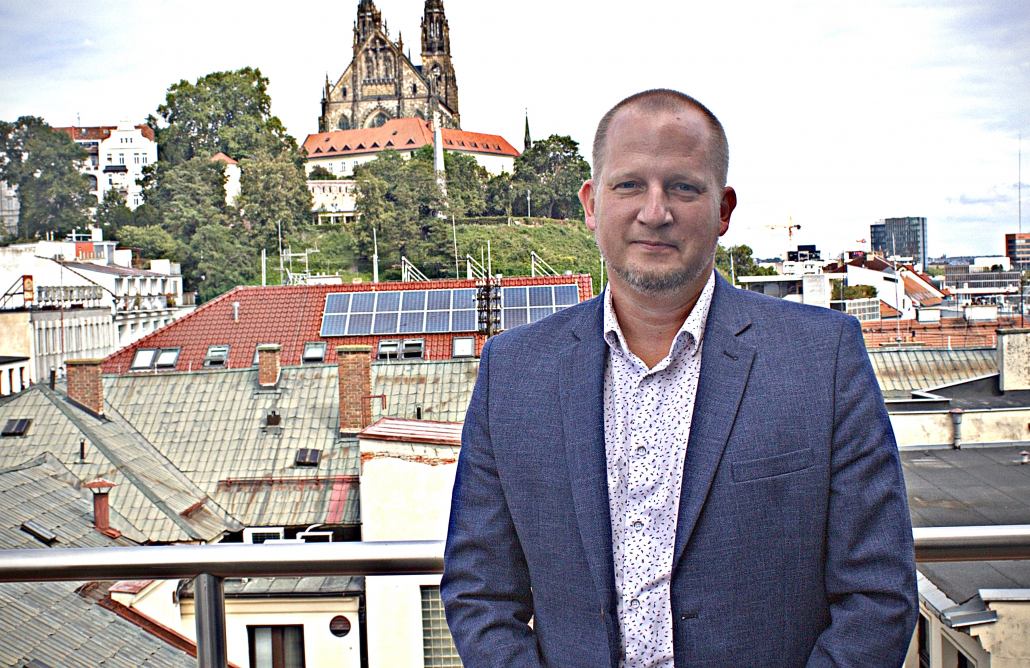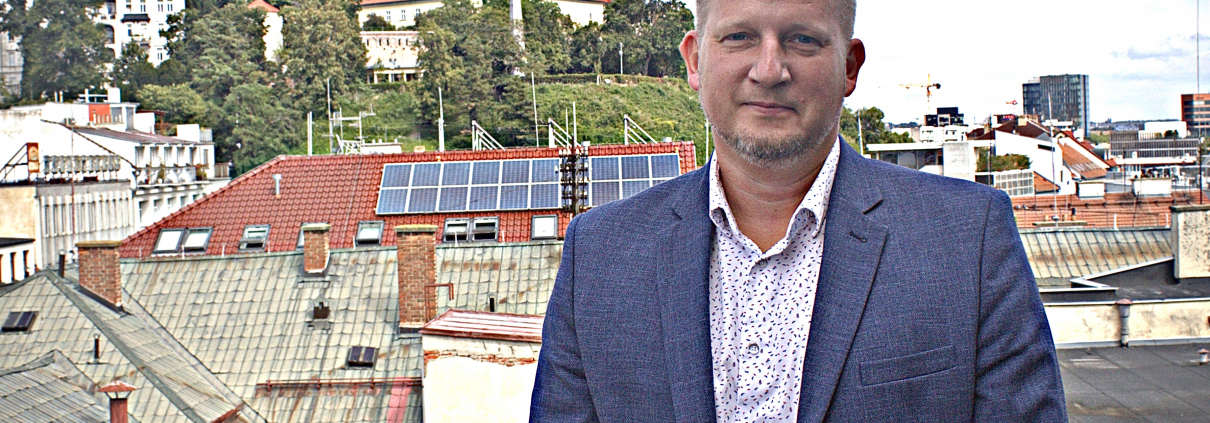I want to enable scientists to do their work without unnecessary obstacles,” says the newly appointed Head of the ICRC
The International Clinical Research Center (ICRC) has new leadership as of August. Michal Masařík, a scientist specializing in tumor biology and a research group leader at the Faculty of Medicine of Masaryk University, has been chosen by the management of St. Anne’s University Hospital and the Faculty of Medicine at Masaryk University as the new head of the ICRC. Where does he want to take the ICRC with his leadership, and where does he see the institution’s biggest gaps? How does he plan to strengthen its brand, and what will be his immediate focus upon taking office?

What are your initial feelings after becoming acquainted with the ICRC?
Initial feelings? Great. There are top-notch scientists here, and top-level basic research is conducted. I started with the perception that the ICRC is an excellent institute with outstanding infrastructure, which certainly has room for further advancement.
What specifically led you to apply for the position of head of the ICRC?
I currently lead a research group at the Faculty of Medicine of Masaryk University, focusing on oncology research in collaboration with clinical facilities. The opportunity to become the head of the ICRC—an entire research institution with teams not only in oncology but also in cardiology, neurology, and immunology—is a challenge I welcome. I believe I can further advance this excellent institution.
What would you like to focus on immediately upon taking office?
The first thing I want to do is personally meet with the various teams. Not that I don’t know them or what they do, but I’d like to talk with them to understand what limits their work and where the focus should be. Their primary task should be conducting top-level research, and I want to enable them to do that work without interruptions. I also want to discuss the possibilities of some applied outcomes and address the challenge of financial stabilization. In today’s world, securing funding for science and research is not easy, and I am concerned that it might not improve in the future.
Where do you see the ICRC in two years?
In two years? That’s a relatively short time! The ICRC has first-class infrastructure that can be enhanced through new contacts both within the Czech Republic and internationally. Setting such a goal for two years would be ambitious, but I would like to position the ICRC among the top institutions in the Czech Republic.
Where do you think the ICRC has the biggest gaps? What areas need improvement?
This is something I will be exploring gradually. I am not an insider, but I have jumped right in and am gradually figuring out where improvements can be made. I believe that the somewhat complex realization of applied outcomes might be a limitation. This is an area where work could be done, particularly in negotiations with ministries. I also see the importance of public relations. It is crucial for both the professional and general public to be aware of what the ICRC brings to the population. I am convinced that I will find other areas for improvement as well, and there will always be room for enhancement.
Do you already have a specific idea of how to approach this?
First, I want to analyze the entire situation at the ICRC. I plan to meet not only with the research teams but also with the hospital management, heads of individual clinics, clarify mutual expectations, and work on improving efficiency within the hospital. I would like the ICRC to be able to produce more applied outcomes and to increase its visibility not only throughout the country but also internationally. Regular updates on the successes of scientific teams are very important. The fact that they publish in the most prestigious scientific journals is excellent, but such information should not remain within the ICRC! Regular interviews and engagement of individual teams in social media presentations could be beneficial. Let’s not be afraid to humanize communication more. Of course, I understand that some may see this as time spent beyond their work, but I believe it is beneficial for both the institution and the researcher. It’s important for people to know that the funds invested in science and research are well spent.
You have your own research group at the Faculty of Medicine of Masaryk University. Do you plan to continue leading it after assuming the position of head of the ICRC? Will there be any changes in how the group operates?
This is something I also considered deeply when applying for the position. My research group has been operating for almost fifteen years, with several senior scientists I can rely on. It is already established at the Faculty of Medicine and regularly participates in teaching. I will remain the head of the research group, but I believe I can delegate much of the daily management. Additionally, the Faculty of Medicine and the University Campus are not too far apart.




